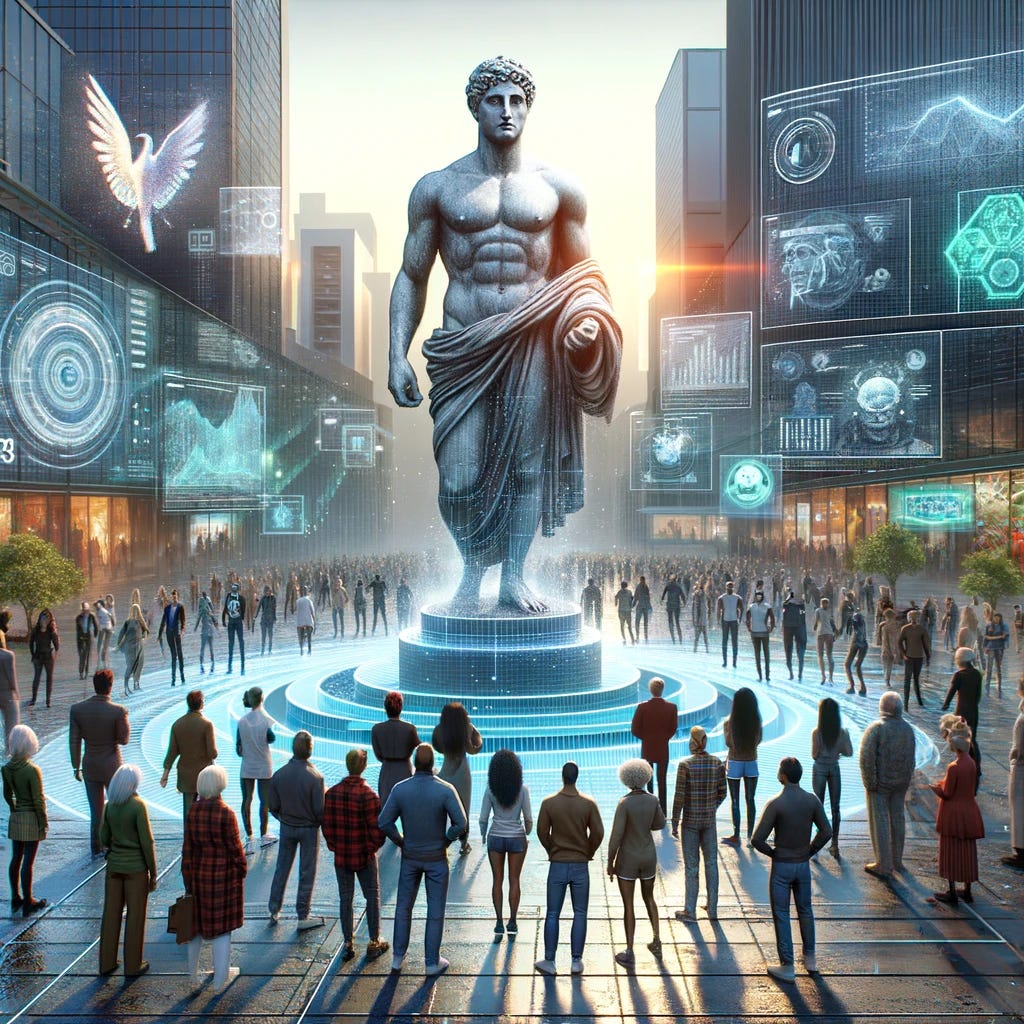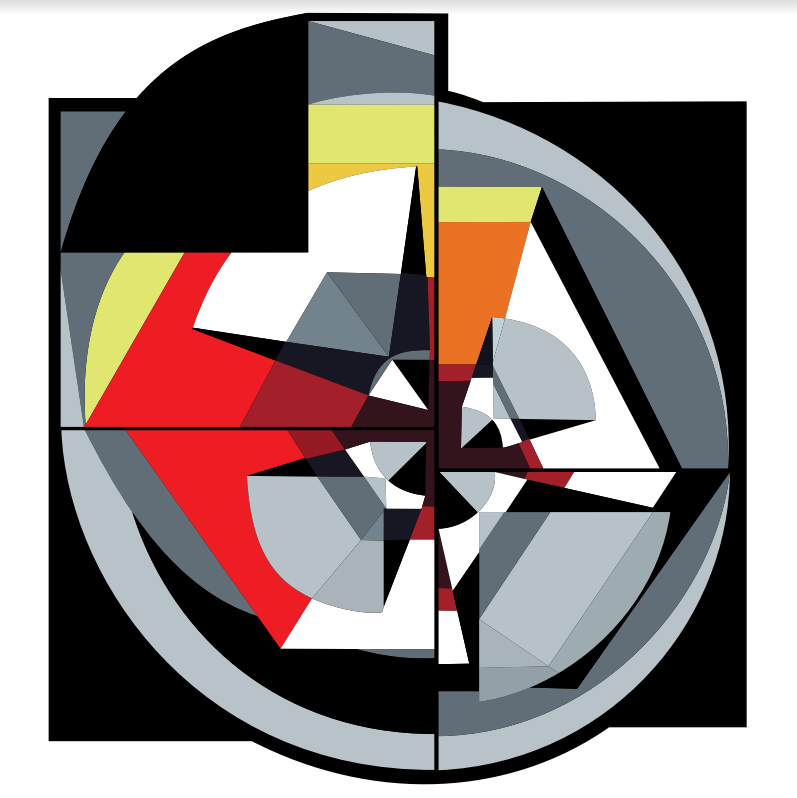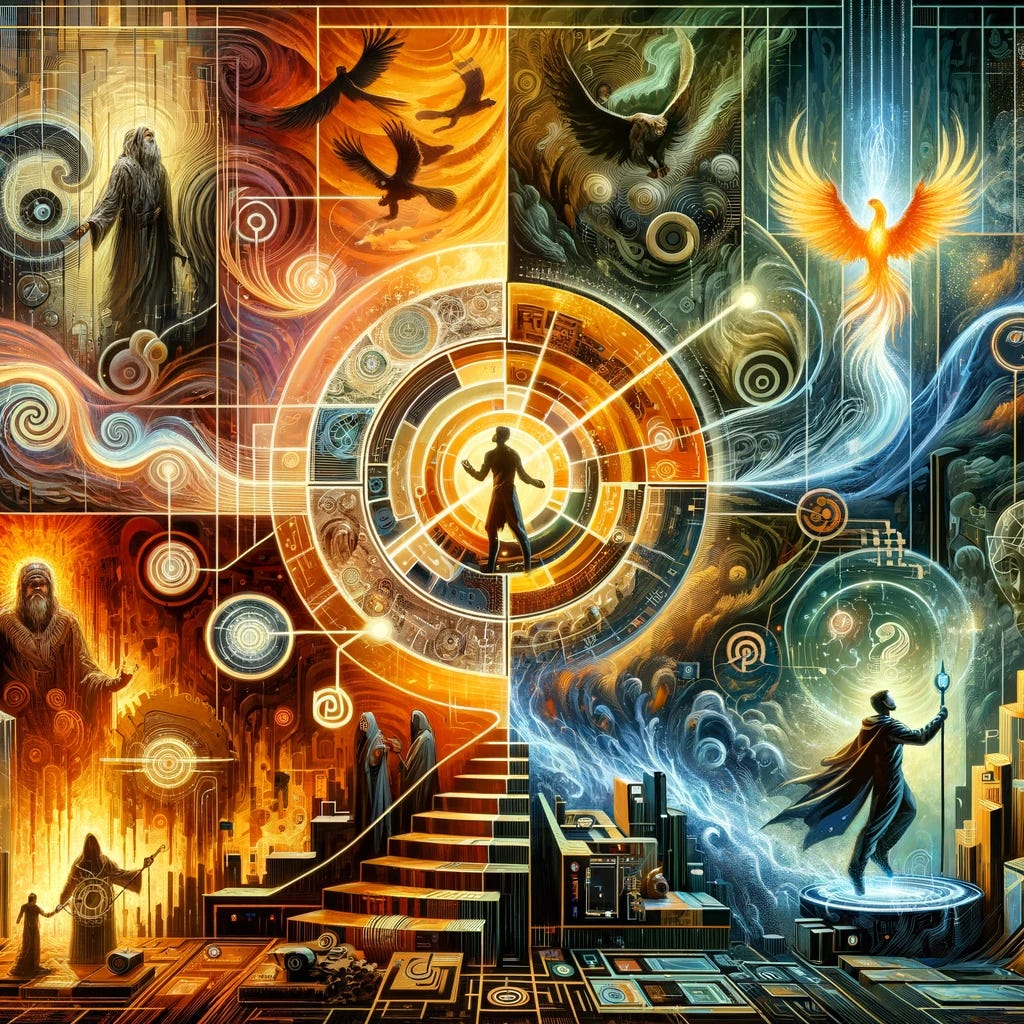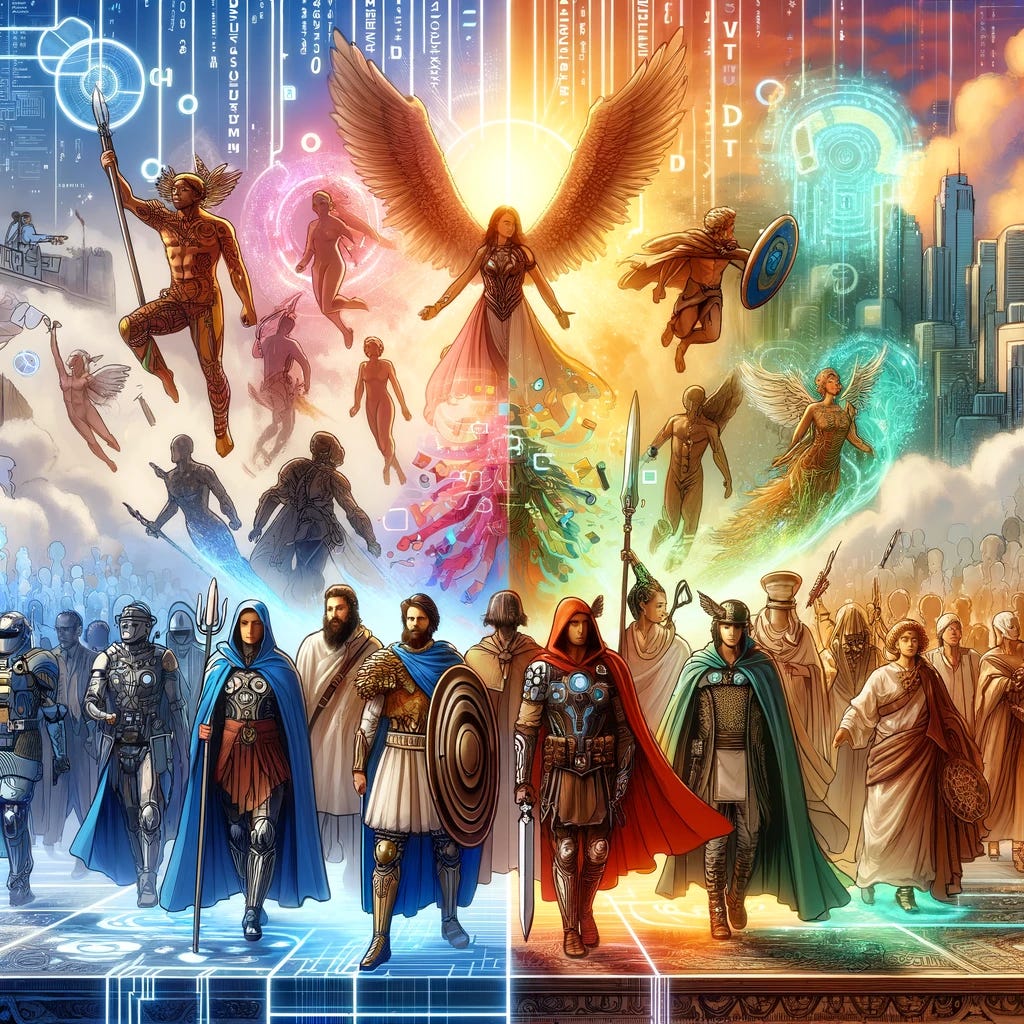The Return of The Hero - FL #6
The Cultural Revolution That Will Help Us Create a World of Abundance
Hello, fellow explorers! I hope you have all been well.
Today’s piece is influenced by Marc Andreesen’s techno-optimist manifesto and what I think is necessary to optimize for broad impact!
Welcome to the 4 new crew members who have joined the frontier since the last letter! If you haven’t subscribed, join the 22 curious explorers in our adventure to understand the frontier of innovation.
The Return of The Hero
I recently read the Not Boring newsletter piece titled Riskophilia. Packy argues we should encourage and embrace risk-taking and growth instead of risk aversion and anti-growth. He notes Marc Andreesens's newly released Techno Optimist Manifesto, a rallying cry for the techno-optimist community. The driving point of both is similar: we must aim to create new and better technology and encourage growth; however, each reaches a different audience set.
The Manifesto lists many beliefs and motivations of the techno-optimist community, so it's challenging to sum up briefly. The one line that does it the most accurately is,
"Combine technology and markets and you get what Nick Land has termed the techno-capital machine, the engine of perpetual material creation, growth, and abundance."
In Riskophilia, Packy calls on people to take more risks or at least be willing to accept, encourage, and nurture individuals willing to take more risks because it will inevitably result in great tech and a world of greater abundance.
I think that for a manifesto, this was extraordinarily well done (I also tend to put Marc Andreesen at the top of my "most intelligent individuals in the world I'm aware of" list and someone I would love to talk to at some point). Packy's point on risk takes the Manifesto and makes it more applicable to the everyday person, which is really helpful.
Manifesto -> tight-knit community
Riskophilia -> Open to a broader group for conversation.
However, I think there is a more necessary movement that will bring the techno-optimist dream to life quickly. It includes a more whole approach, with much more participation, and allows everyone to participate, even if you're not technologically savvy.
This necessary movement is the Return of the Hero. Our future can be one of great abundance. While the way to get there comes from enhanced technology, it starts downstream of every individual.
Fear of the future, flight to the past
What the hell do I mean by "The Return of the Hero?"
I've been reading Jordan Peterson's Maps of Meaning, an absolutely brilliant work on the intersection of myth, consciousness, religion, and psychology. The only other book that's around which I know is similar to it is Erich Neumann's "The Origins and History of Consciousness."
One powerful commonality that has persisted across time and culture is the necessity for a core story that the individuals of a society use to guide their actions; we call these Myths or Religions (religious stories).
Maps of Meaning grabs at something approximating a universal morality. Jordan Peterson draws out the framework of the stories and abstracts the underlying behavior of six primary "characters." What makes this interesting is that this framework has existed since ancient Sumer, Babylonian, ancient Egypt, and, as far as we know, every single culture that has ever existed. Humans seem to NEED a narrative that portrays values for humans to embody and strive to represent in daily life. The six characters are
The Hero
The Adversary (opposite of the hero)
The Great Father
The Terrible Father
The Great Mother
The Terrible Mother
Here are some of the traits and descriptions of each of these characters:
The Hero -> Manifest Order into Chaos
The Adversary -> Killer of hero, intellectual arrogance
The Great Father -> Establishes cultural bounds and protects - order.
The Terrible Father -> In fear of chaos, establishes too much order - Tyranny.
The Great Mother -> Nurturing, birth-giving, beauty -> Nature.
The Terrible Mother -> mortal terror, the eyes in the darkness that may jump out and kill you -> Chaos.
Make a new world out of the emergent chaos.
The hero in the mythological and religious stories nearly always restores order, saves the great father from the underworld, and goes through a resurrection following death. Not all of these characteristics existed for the Hero in every society, but as we became more complex, the stories upgraded and provided more insight into how one should act.
The characteristics noted above provide a metaphor for how we should act:
The manifestation of order from chaos is no different than finding better ways to do things. The reason we find better ways to do something is mostly because the previous way has become outdated, as newly emergent chaos (in whatever form) destroys the old way. Therefore, we need new tools, methods, and actions to live in this new world. Said another way: Create better technology to make the chaos go away.
Saving the Great Father from the underworld is a metaphor closely related to the first. This action demonstrates that the hero voluntarily confronts the chaos, with the consideration of some of the previous cultural notions that did work before. Saving the great father is, to say, willingly re-establishing order when disorder arises by considering the cultural success of the past.
The resurrection is a metaphor for voluntarily enduring the pain so that you can manifest order back into the world in a new way: Suffer through hard things to make future life more manageable.
Religious and Mythological stories are observations of how humans should act for a great life to exist. Our ancestors have observed our species throughout the hundreds of thousands of years we have been around. The religious stories are an attempt by our species to define the rule-set of the simulation.
The reason we stopped embodying the hero is because of what Nietzsche proclaimed - The Death of God. Nietzsche essentially said that in the era of the death of god, the individuals who would be able to survive are the ones who would be able to create their own values and structures that they no longer received from the embodiment of the stories.
Carl Jung's critique was that human action is largely guided by the unknown forces of the unconscious mind and that consciously creating a value structure and following it is not only difficult but it's impossible.
So… how do we create a cultural revolution to bring a return of the hero?
Techno-Optimism: Turn the Den of Champions into a Nation of Heroes
The precursor to a technological future of abundance is for a mass wave of people to embody the hero once more. To me, there are three primary solutions to this:
Embody the heroes that have brought us to this point in society and have a lot of mythological and religious underpinning.
Embody new heroes from other stories with well-developed heroes.
Continue to decypher the religious texts to make the teachings of these stories psychologically rational.
I think that 1 or 2 is the best option. 1 seems the safest, 2 must be done carefully, and 3 is a good way to understand which to choose.
For 2, you create an open-source NFT writing project with many contributors. You vote on the people's actions in the story so that the story society follows is based on a shared story written by many different people. This can be the pinnacle of a network state.
All of this is to say that to bring people on board with techno-optimism, to bring people on board with taking more risks, people must first embody the hero. The embodiment of the hero is possible for every single person to do, even if you don't know how to program.
The embodiment of the hero will push people to aim at solutions to their debt, aim to continue to manifest beauty in their lives, build families, and make a better world around them. This is more than symbolic and mythological; we're at a point where this is practical and necessary.
Enjoyed these insights and want to explore more on the intersection of technology, culture, and our collective future? Join a community of thinkers and innovators by subscribing to The Frontier Letter. Stay updated with thought-provoking content that dives deep into the ideas shaping our world. Subscribe now and be part of the conversation.
Today, we see many people worshipping The Great Mother, metaphorically speaking, and acting like the Terrible Mother aspects don't exist. We live in a world of rising adversaries, Great Mother worshippers, and Terrible Mother ignorance.
Part of the answer is techno-optimism, but this, unfortunately, doesn't get the whole story right either. I understand that a manifesto is a rallying cry, but to maximize impact, it needs to encapsulate all aspects of the story. The techno-optimism movement is about approaching new frontiers and manifesting matter in ways that improve the world. However, it does not address the horrors the frontier could bring, like loss of jobs, destruction of land, and displacement of what was once valuable to people. In fact, the Manifesto starts with Lies and states:
"We are told that technology takes our jobs, reduces our wages, increases inequality, threatens our health, ruins the environment, degrades our society, corrupts our children, impairs our humanity, threatens our future, and is ever on the verge of ruining everything."
I mean, look, if anyone says technology is "on the verge of ruining everything," then that is a lie, and they are trying to fear you. But to tell people that technology taking jobs is a lie is a little bit of a miss on the target. There are certainly people who lose jobs from technology, and yes, I am in the camp that new sectors undiscovered will be found, but that does not mean that it won't take jobs. What about truck drivers when fleets of delivery trucks become all self-driving?
The contra-techno-optimist "group" doesn't have a name yet, so I will borrow some I've heard from Jordan Peterson: the post-modern Neomarxist, radical environmentalists, and WEF ultra-centralization tyrants. This group worships and glorifies Mother Nature and wants it to go untouched but ignores the beauty of the frontier.
If you're going to go all in on one of these philosophies, it is significantly better to be on the techno-optimist front. At least with techno-optimism extremism, there is a higher likelihood of a better future.
The answer to new and better technology, to taking on more risk, and to a world of great abundance is the return of the hero. Approach chaos and courageously chart new frontiers while carefully considering the ill effects you can have on future societies.
The embodiment of the hero will make life for everyone around you better and better for yourself.
So… what will it be?
I hope you enjoyed it! Have a beautiful week!
Dom









